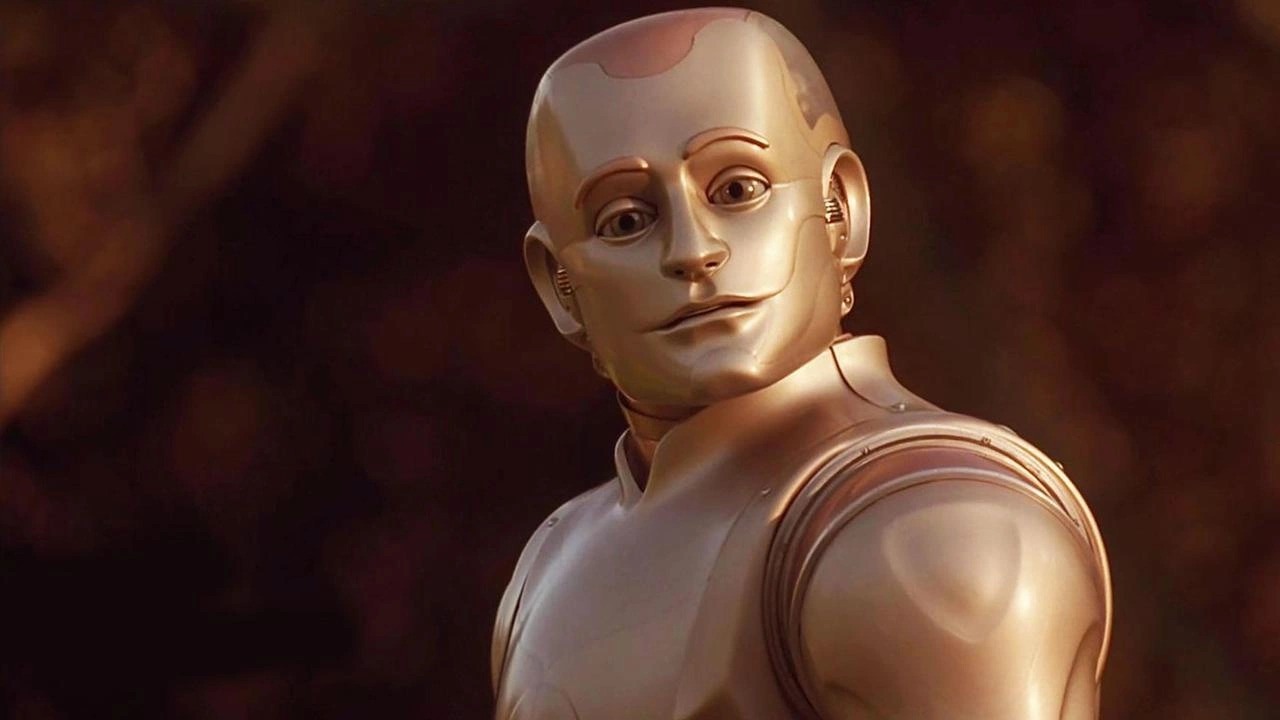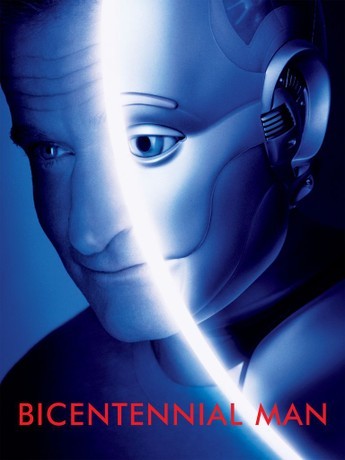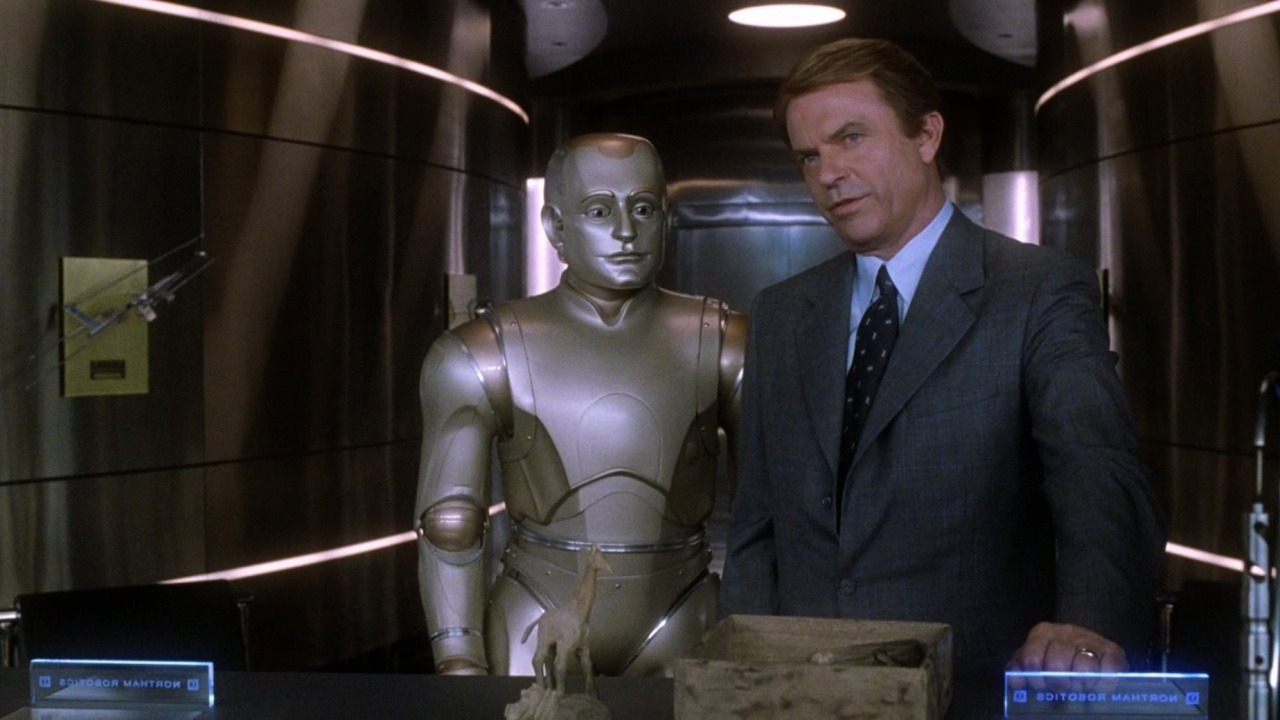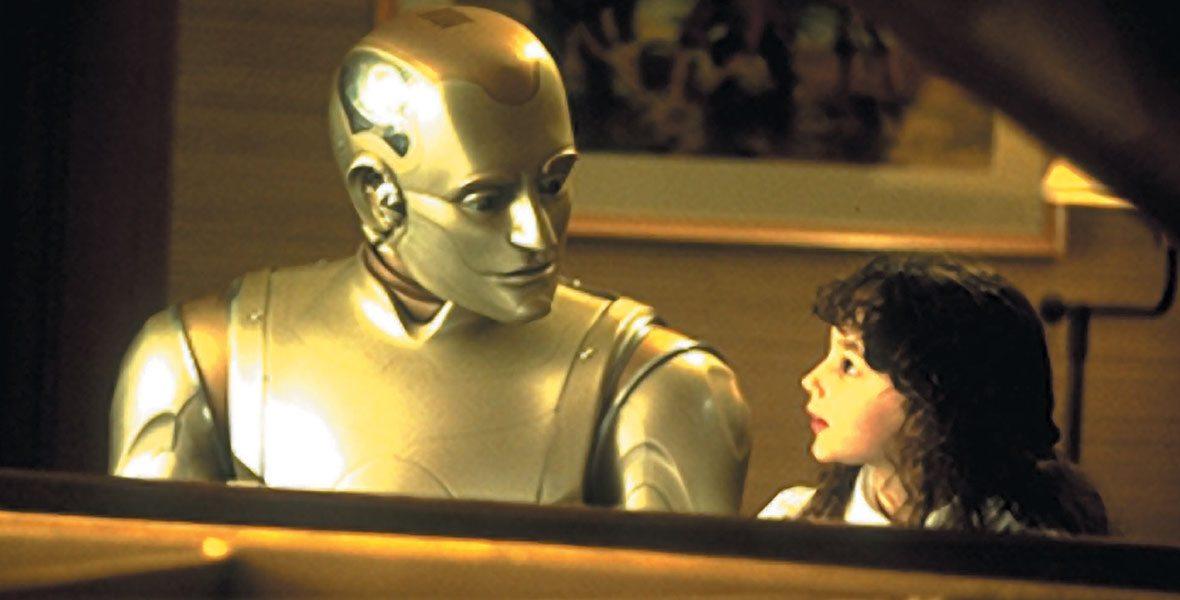Bicentennial Man (1999)

Bicentennial Man (1999) is a science fiction drama film directed by Chris Columbus and based on a story by Isaac Asimov. The film stars Robin Williams, Embeth Davidtz, Sam Neill, and Oliver Platt. It is inspired by Asimov’s novella “The Bicentennial Man” and his short story “The Positronic Man,” co-written with Roger MacBride Allen.
Plot Overview:
The film follows the life of Andrew Martin (Robin Williams), a robot purchased by the Martin family in the year 2005. Designed to be a household servant with advanced capabilities, Andrew is programmed to perform chores and assist the family but initially lacks human emotions and desires.


As the years pass, Andrew begins to exhibit increasingly human-like traits, developing his own sense of individuality and emotions. He becomes fascinated with human experiences and desires to understand and experience life more fully. This leads him to seek legal recognition as a human being, challenging societal and legal norms about artificial intelligence and humanity.
Andrew’s journey spans over two centuries, during which he evolves from a simple domestic robot into a sentient being who yearns for love, self-fulfillment, and mortality. His quest for humanity includes pursuing relationships with the Martin family, particularly with the family’s daughter, Portia (Embeth Davidtz), and eventually seeking out ways to become human himself.


Themes and Style:
Bicentennial Man explores themes of identity, humanity, and the nature of existence. It delves into philosophical questions about what it means to be human, the rights of artificial beings, and the pursuit of one’s true self. The film combines humor, emotion, and thought-provoking ideas to create a narrative that is both entertaining and reflective.
Robin Williams’s performance as Andrew Martin is central to the film, blending his comedic talent with deep emotional resonance. The film’s visual style and special effects help bring Andrew’s transformation and the futuristic setting to life.
Bicentennial Man received mixed reviews from critics, with praise for Williams’s performance and the film’s ambitious themes but criticism for its pacing and narrative execution. Despite this, it remains a touching and introspective film that offers a unique take on the concept of artificial intelligence and the human condition.











